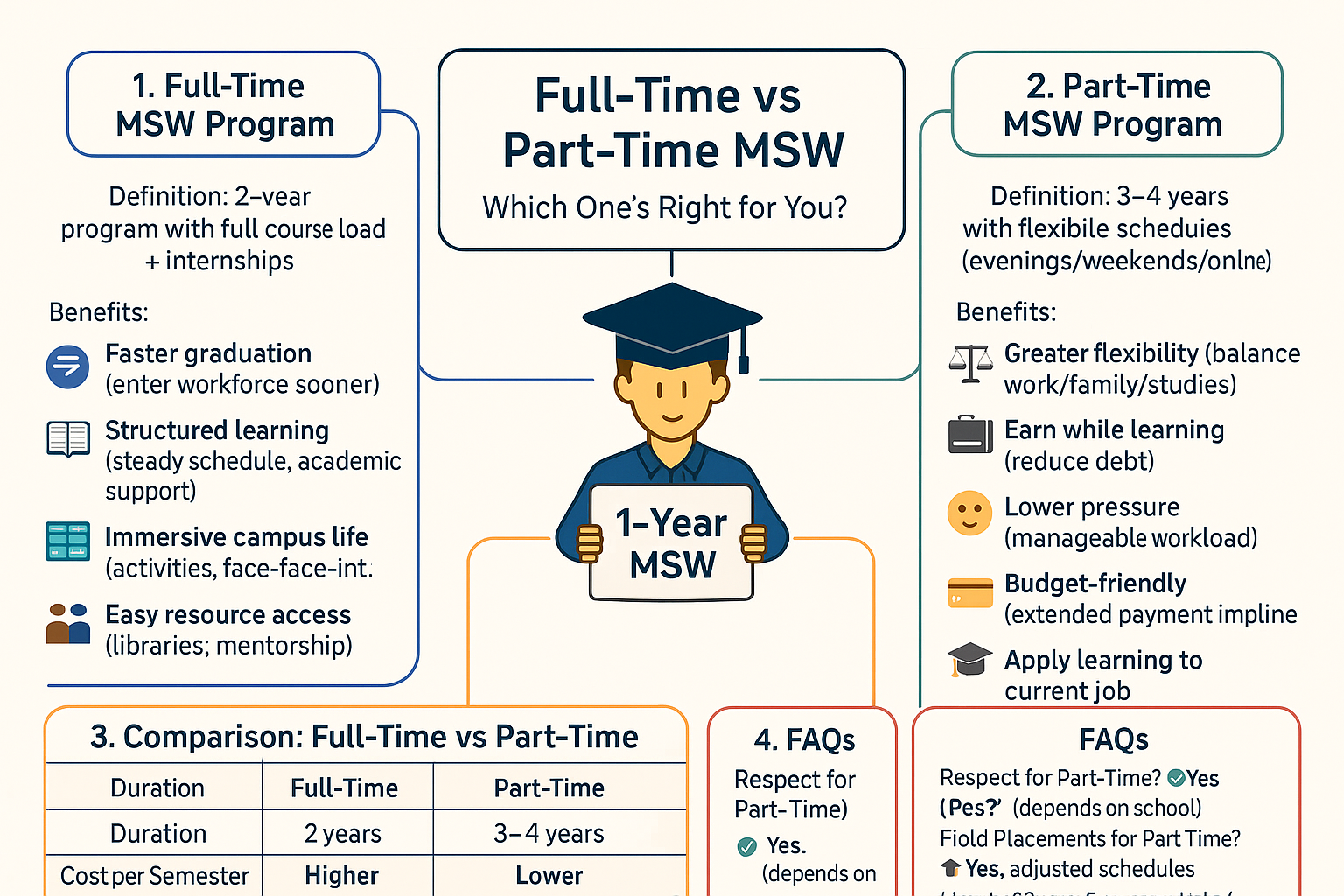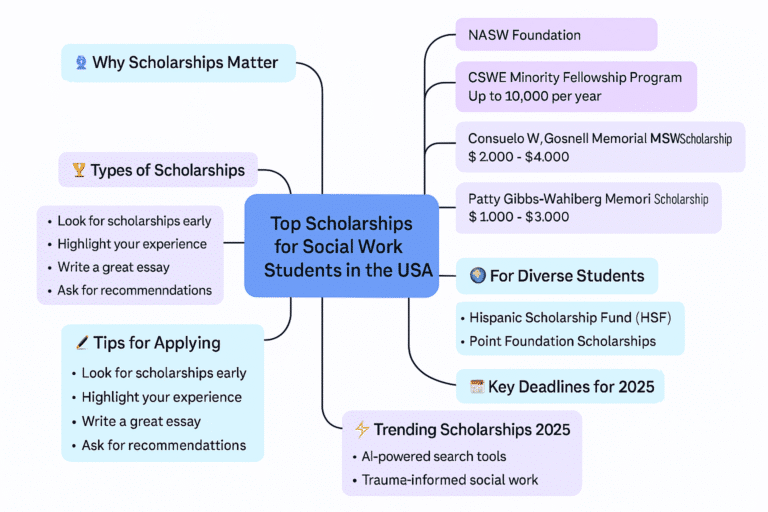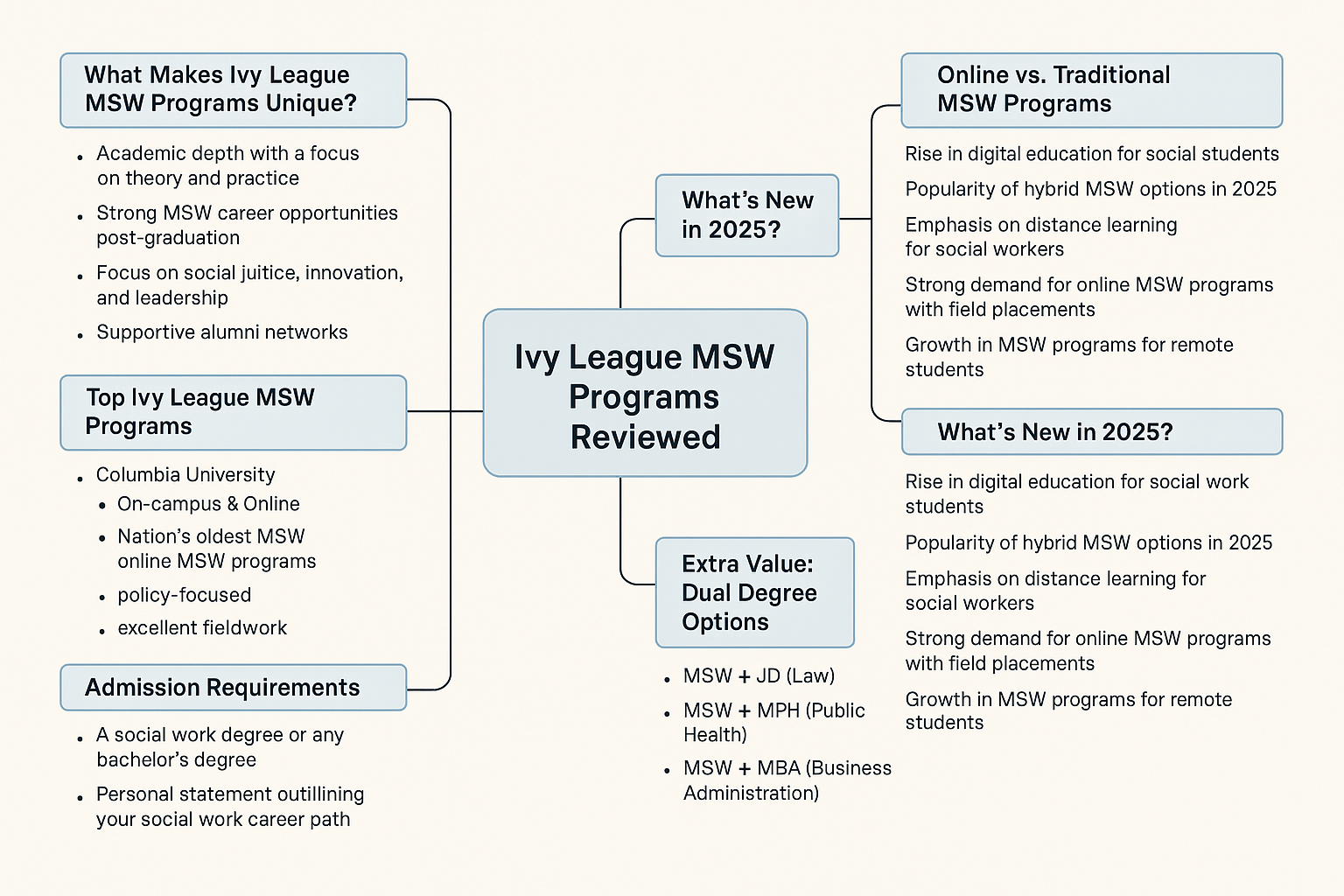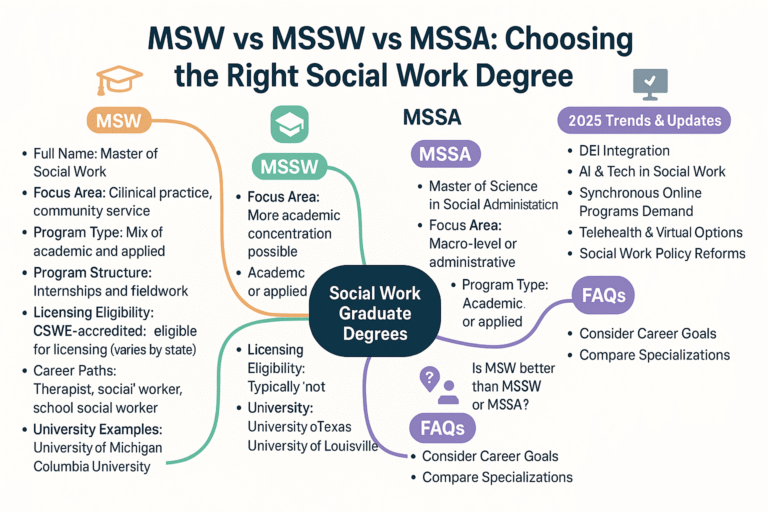Therapist with a Master’s in Psychology? Here’s What You Must Know
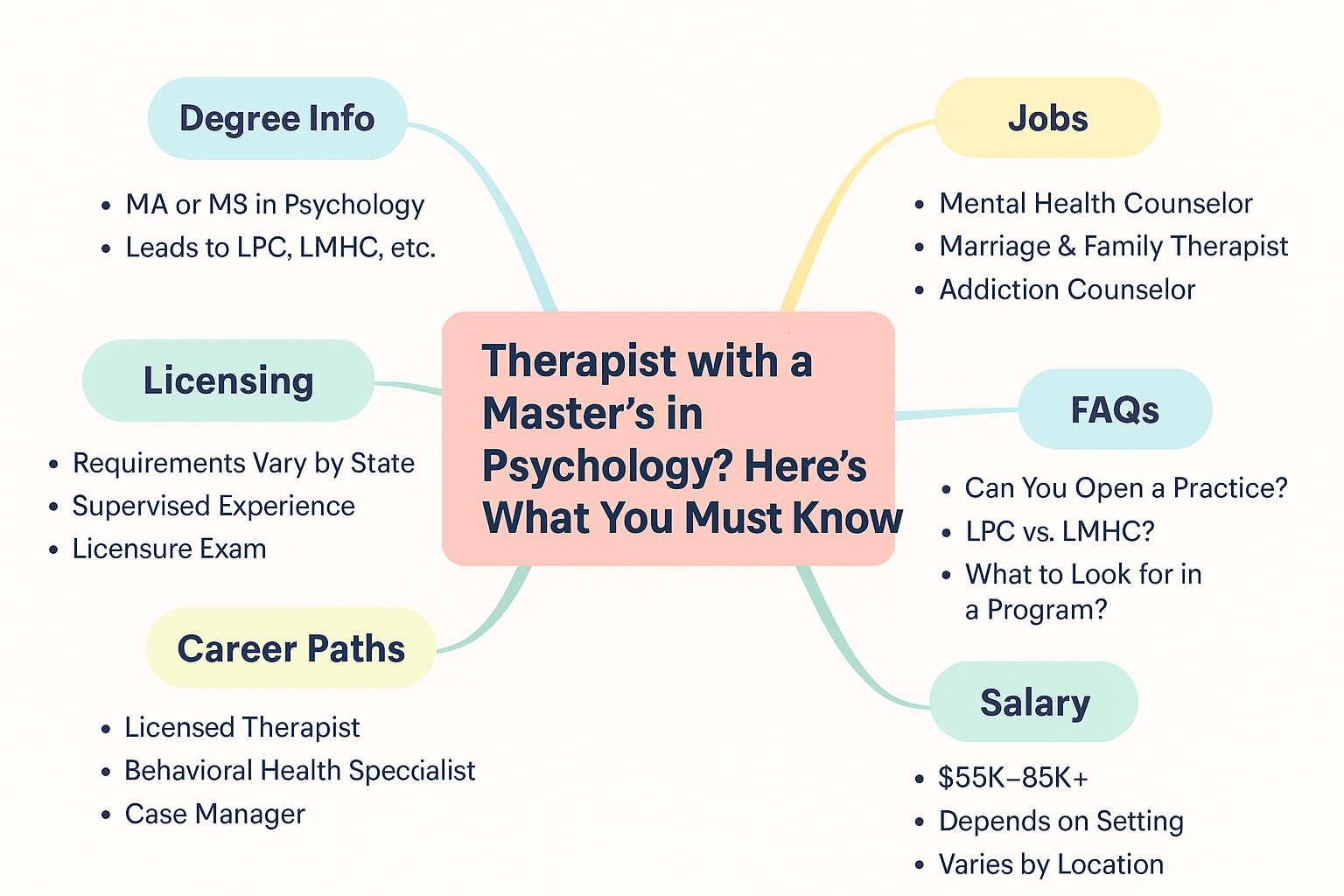
Thinking of becoming a therapist with a Master’s in Psychology? You’re not alone. Many aspiring mental health professionals wonder if they can practice therapy without pursuing a PhD or PsyD. The good news is — yes, you can become a therapist with just a Master’s degree, but there are key things you need to know first.
In this post, we’ll break down the licensing paths, state requirements, career options, and how to move forward with confidence.
Licensing Requirements by State
Each U.S. state has its own mental health licensing board. Most require:
- A Master’s degree from an accredited program
- 2,000–4,000 hours of supervised clinical experience
- Passing a state-approved exam (like the NCE or CPCE)
To check your state’s rules, visit your local state board of behavioral health or psychology.
Master’s in Psychology vs. Clinical Counseling Degrees
A Master’s in Psychology typically focuses more on theoretical frameworks, research, and behavioral science, while clinical counseling degrees (like MFT or MSW) are often more practice-based.
| Program Type | Focus Area | Leads To… |
| MA/MS in Psychology | Theory, research, behavior | LPC, LPA, LMHC (varies) |
| MA in Counseling Psychology | Clinical skills, therapy techniques | LMFT, LPC, LMHC |
| MSW (Social Work) | Advocacy, clinical therapy | LCSW |
Note: Choose a program that’s state-accredited and meets license requirements
Can You Really Become a Therapist with a Master’s in Psychology?
Yes, but it depends on your state and the specific license you pursue. A Master’s in Psychology (usually an MA or MS) can lead to a therapy career if you follow the correct licensure path, like:
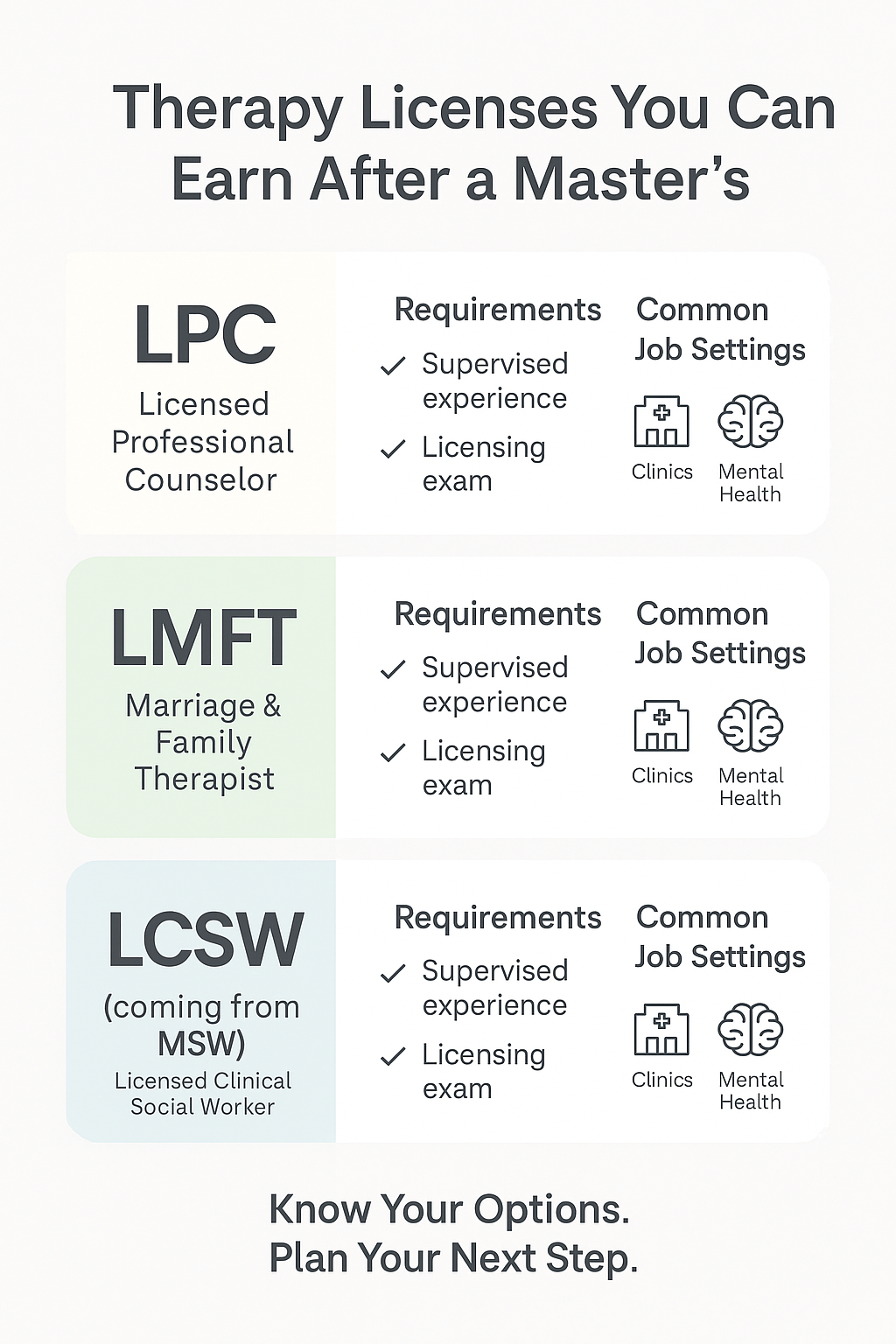
- LPC (Licensed Professional Counselor)
- LMHC (Licensed Mental Health Counselor)
- LPA (Licensed Psychological Associate)
- Marriage and Family Therapist (LMFT) — in some programs
These credentials allow you to practice psychotherapy legally and independently, depending on the jurisdiction.
MSW vs LPC: Choose the Right Counseling Career for You
Skills Acquired in a Master’s Psychology Program
A master’s in psychology equips students with essential skills for therapy, such as:
- Therapeutic techniques: CBT, DBT, and other methods.
- Behavior analysis: Understanding client behavior and emotions.
- Cognitive therapies: Helping clients change maladaptive thoughts.
What Jobs Can You Get with a Master’s in Psychology?
Once licensed, your job opportunities expand significantly:
Licensed Therapist Roles
- Mental Health Counselor
- Family or Marriage Therapist
- Crisis Intervention Therapist
- Addiction Counselor
- Behavioral Health Specialist
Must Read: MSW or Psychology: Which Pays More & Grows Faster?
Alternative Career Paths
- Psychology Research Assistant
- Program Coordinator (in mental health orgs)
- Case Manager
- Health Educator
- HR or Corporate Behavioral Consultant
Expected Salary Ranges (U.S.)
| Role | Avg. Salary (2025 Estimate) |
| Licensed Mental Health Counselor | $65,000–$85,000 |
| Marriage & Family Therapist | $60,000–$80,000 |
| Behavioral Therapist | $55,000–$75,000 |
Please Note: Salaries vary based on location, experience, and work setting (private practice vs. nonprofit).
Is a PhD or PsyD Required to Practice?
Not necessarily.
You only need a doctoral degree (PhD or PsyD) if you want to become a licensed clinical psychologist, conduct psychological testing, or practice independently in some states.
However, many therapists successfully build careers and private practices with just a Master’s and a license.
Challenges and Benefits:
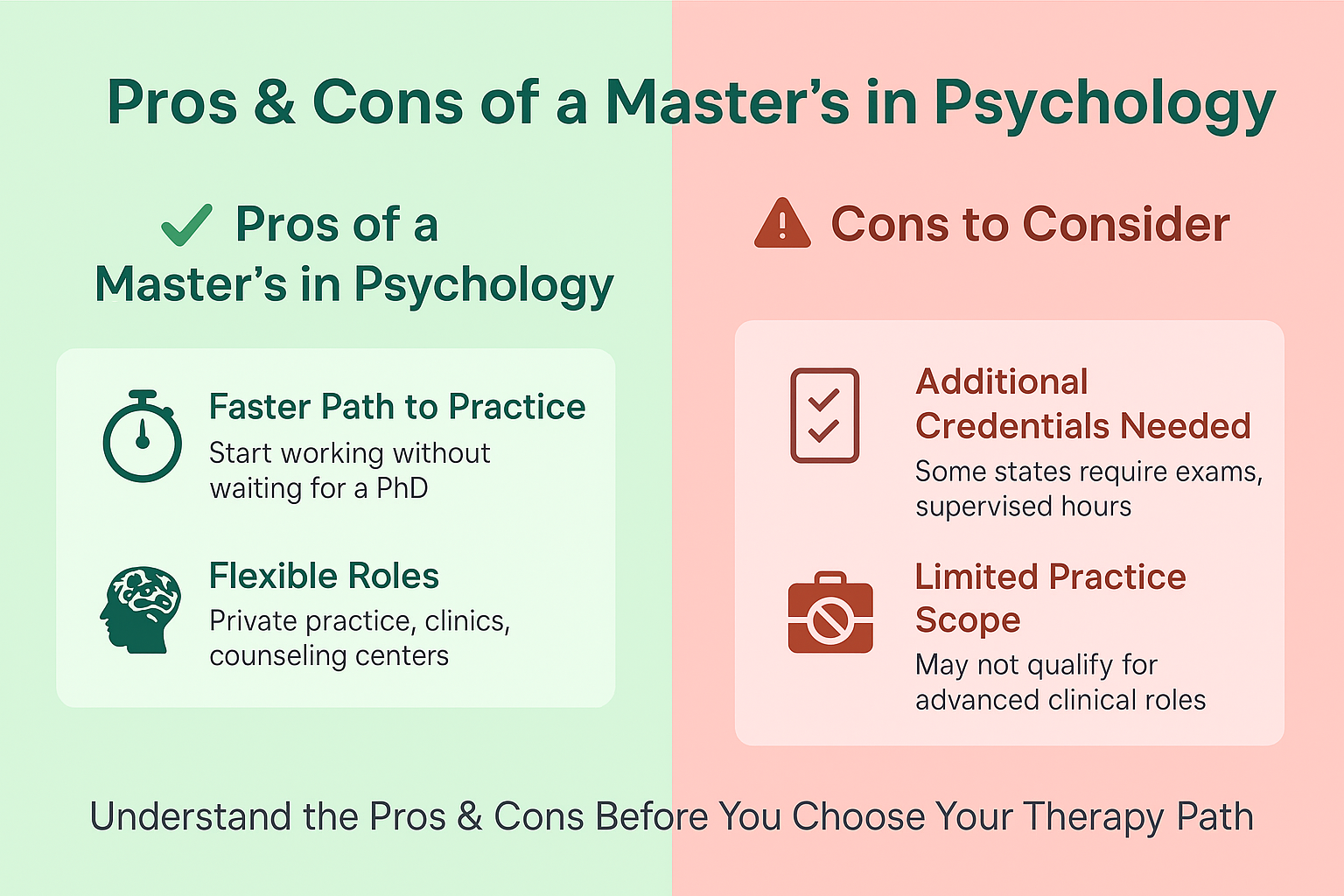
Pros:
- Faster Path to Practice: Compared to PhD or PsyD, a master’s in psychology allows you to start working sooner.
- Flexible Roles: From private practice to mental health centers, there are many job opportunities.
Clinical Social Worker vs Therapist: What’s the Difference?
Cons:
- Additional Credentials: Some states require further exams and internships to become licensed.
- Limitations on Practice: Without a PhD or PsyD, you may have limitations in certain clinical settings.
Final Thoughts: Is It the Right Path for You?
Becoming a therapist with a Master’s in Psychology is totally achievable — and a smart path if you’re passionate about helping others but not ready for 5+ years of doctoral study. Just make sure your program sets you up for the license required in your state.
Pro Tip: Before enrolling, contact your state licensing board and ask what degrees and internships are accepted.

